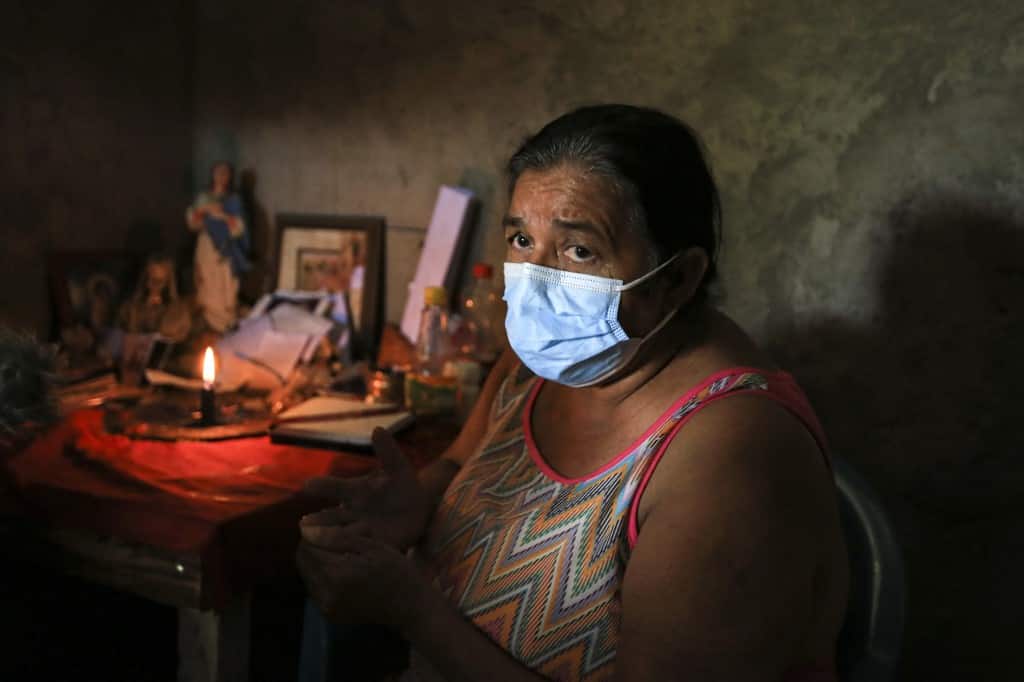Candles illuminate the small room where Gregorio Vargas lays out on a table the tarot cards, one of his tools to remedy ills and problems or to tie up impossible loves in Diriomo, a town famous for traditional healers in Nicaragua.
In the office there are Catholic saints and crosses, representations of Changó, a god of Afro-Cuban Santeria, and images of owls and deities of magic and the occult that help Vargas, 52, one of the curanderos or “witch doctors” of this village, 40 km south of Managua.
“I was born with this gift and at the same time I learned it from my mother”, explains the man of thick complexion and who relies on canes because he suffers injuries in his knees.
The healer attends in a house only different from others in Diriomo because on the facade there is an image of San Martin. Inside, a white sign with red letters announces: “Spiritual Center”.
Unlike Vargas, who specializes in the occult, other healers use only plants with healing properties to treat ailments, as an alternative to the public services of traditional medicine which, according to the Pan American Health Organization (PAHO), cover 80% of the 6.8 million inhabitants.
The belief in healers is part of the popular traditions that have survived political changes in Nicaragua, where even the government of Daniel Ortega promoted a law that since 2011 considers the use of plants by healers as traditional and natural medicine integrated into the formal model of family and community health.
The healers or shamans of the aboriginal cultures of Mesoamerica treated illnesses with plants and attributed some ailments to the influence of spirits. That vision was mixed in Nicaragua and other Latin American countries with elements of Catholicism introduced by Spanish conquistadors, and also with animist beliefs brought by African slaves.
Vargas and other curanderos like to call themselves spiritual “doctors” and claim to be heirs to an ancestral knowledge focused on “doing good” with the help of the spirits of those who in life were doctors and men of science.
Letters online
Sometimes the service of the healers is online and they read the letters to people living abroad, says Maria Vargas (60), who says she serves about 100 people a week in Diriomo.
“The letters, if the person is not here, is outside Nicaragua, we throw them online”, through social networks, she said. The woman is a descendant of “the Palomitas”, a family of “doctors in occult sciences” from Diriomo, from whom she learned to “save people”.
“We know how to do all kinds and types of work (…) I know bad things because my mother taught me, but we do not work badly because if I cure, I cannot work evil, because my spirits tell me not to contradict myself,” says Maria.
The tranquility of the afternoon is interrupted by the passing of old buses that brazenly announce their arrival in Diriomo amidst the heat of the season.
On one side of the central park, a banner on the façade of the Catholic church announces a festival, and on the continuous side of the same park, music plays as an invitation to “Brujo’s Bar”, which proudly displays its name derived from Diriomo’s fame.
Jeaneth Sanchez (49) says that most of the people who go to the healers want to treat health issues and return of love.
“They come quite a lot also for couples, looking for help, that another person takes it away from the husband and (in) that is not bad to help him,” says Sanchez, who reads tarot and supports her husband, Gregorio Vargas.
I do not cure him, God does
Diriomo, with some 33,000 inhabitants, is part of the so-called “white villages” located along the roadside on the Meseta de los Pueblos, between Masaya and Granada, characterized by the beauty of their handicrafts, culinary richness and colorful folkloric dances.
In the park, motorcycle cab drivers and vendors ask visitors if they need a curandero to guide them. Some people avoid the subject upon hearing the questions, others are skeptical.
“People always keep visiting those places for good or for something bad, I don’t know. They visit because it works for them. But, as I tell you, those of us who believe in God can’t believe in those things,” said sexagenarian retiree Marta Sandoval.
Sandoval believes there are fewer healers. Now “they have to go around looking for clients,” she says. Meanwhile, María Vargas says she has a divine gift to help people.
“I thank God because he gave me the gift of saving people in the name of the Lord, because what I give, I don’t cure, my God does,” she concludes.






